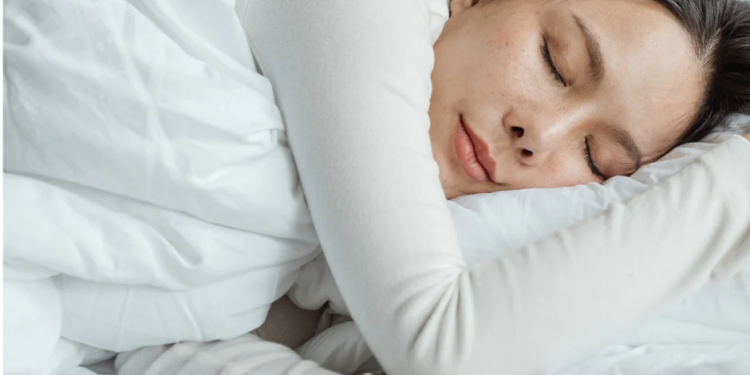The Christmas party season can be the perfect opportunity to get dressed up, pop open some prosecco, catch up with friends, eat copious mince pies, and let it loose on the dance floor.
To prepare us for the party season, Bensons for Beds’ resident sleep expert, Dr Sophie Bostock, explores how to protect your wellbeing and sleep during this period of festive fun.
Dr Bostock explains the benefits of increased socialising:
“After a few lean years of socialising during the pandemic, it may feel especially hard to turn down a festive invitation, even when you’re tired. Strong social connections are linked to better sleep quality, so there is a lot to be said for investing time and energy in strengthening relationships!
The challenge to look out for is when successive late nights mean we miss out on sleep, which weakens our self-control, and can make us more vulnerable to infection. How can we avoid a Christmas season plagued with poorliness, and still celebrate in style?
The key thing to remember is the importance of protecting good quality sleep. Deep sleep is when the immune system does most of its work, fighting foreign invaders and strengthening our defences. Sleep loss increases your risk of infection, and slows down recovery.”
5 ways to enjoy the party season and protect your immune system
Here are 5 strategies you can use to make the most of the Christmas party season, while protecting your immune system:
1. Bank sleep in advance
“If you know you’ve got a big night coming up, plan ahead. Go to bed a little earlier for up to a week ahead of the event to help you replenish your sleep supply. Researchers have found that sleep ‘banking’ by extending time in bed in advance can help you recover faster from the symptoms of sleep deprivation.
It’s not clear exactly how much sleep you need to bank, but if you’re not routinely getting the recommended 7+ hours of sleep, that would definitely be a good minimum to aim for.”
2. Night Cap? Avoid the Espresso Martini
“Drinking alcohol regularly or to excess can interfere with the immune system and disrupt sleep quality at the same time. Alcohol can damage the immune cells and fine hairs in the airways that would usually clear foreign pathogens. Alcohol can also trigger inflammation in the gut and destroy the healthy bacteria that would ordinarily support the immune response.
If you do decide to drink alcohol, try to avoid drinking on an empty stomach. You can reduce consumption by alternating with non-alcoholic drinks at a party. If you stop drinking alcohol a few hours before going to bed this will give your body time to metabolise the alcohol in your system before you go to sleep and reduce the negative impact that alcohol would otherwise have on your sleep quality.”
3. Keep your bedroom cool
“Our first instinct when it’s icy outside can be to crank up the heating, but you may want to think twice about using central heating in the bedroom. Your body uses a drop in temperature as a cue to get into deep sleep. Keeping your bedroom slightly cooler than the rest of your home could help you achieve a more restful and rejuvenating sleep. Yes, that includes after a Christmas party with friends and family.”
4. Wake up in the morning as usual
“It may sound counterintuitive, but try to avoid sleeping in all day after the Christmas party. By all means have a bit of a lie in to catch up on your sleep, but remember that the later you sleep in, the more difficult it will be to get out of bed the following day.
Maintaining similar wake up times every day of the week can help your body clocks to stay in sync. Aim to keep day to day changes to your sleep pattern to within an hour as often as you can. Consider a short nap after lunch if you find that you’re sleepy during the day.”
5. Try to avoid the midnight munchies
“Meal times can become haphazard when you’re going to a party. You may find yourself eating on someone else’s schedule, eating very late at night, or just grazing throughout the evening. Food, like bright light, is one of the cues that our brain uses to regulate our body clocks. Eating late at night can delay our body clocks, making it harder to fall asleep and also potentially delaying your wakeup time.
Our internal rhythms in appetite and digestion anticipate that we’ll eat the majority of food during daylight hours. Eating late can make our metabolism less efficient, so that excess calories are more likely to be stored as fat. If you are hungry before bed, aim for a small snack with fibre and protein, rather than anything high in sugar, since sugary foods before bed have been linked to lighter, more fragmented sleep.”
For more expert sleep advice visit the Bensons for Beds Sleep Hub.

You can join us on our social media pages, follow us on Facebook, X (formerly known as Twitter) and Threads where you can keep up to date with whats going on in South Devon.
Got a news story, blog or press release that you’d like to share or want to advertise with us? Get in touch via email admin@wearesouthdevon.com




























